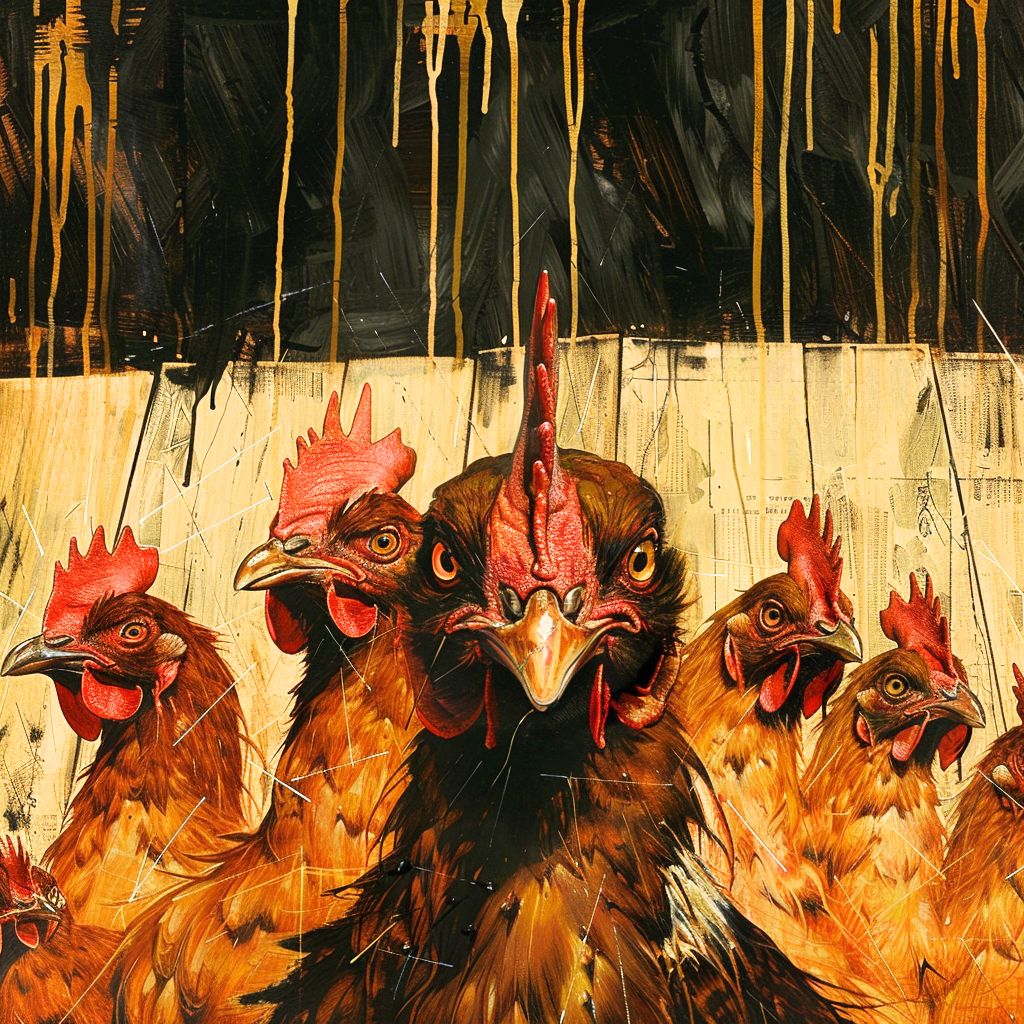Step into a world where words hold sway and expressions shape perception. Join us on a journey through idioms of influence, where language unveils the intricacies of power dynamics.
From “holding the reins” to “having someone in your pocket,” these phrases offer glimpses into leadership, manipulation, and success.
Let’s delve into the stories behind these captivating idioms and uncover the essence of power in our language!
1. Hold the reins
The idiom “hold the reins” describes being in control or in charge of something. This phrase is often used in both professional and casual contexts to highlight someone’s authority and leadership role.
It originates from horseback riding, where holding the reins allows the rider to direct and control the horse’s movements. This idiom emphasizes command and responsibility.
Using “hold the reins” in conversation adds a sense of control and leadership, indicating that someone is managing a situation or organization effectively.
Example 1: “She holds the reins of the company and makes all the important decisions.”
Example 2: “After the project manager left, Tom had to hold the reins to keep everything on track.”
2. In the Driver’s Seat
The idiom “in the driver’s seat” describes being in control of a situation or in a position of authority. This phrase is often used in both professional and casual contexts to indicate that someone has the power to make decisions and steer the direction of events.
It originates from the literal position of a driver, who controls the vehicle and determines its path. This idiom emphasizes control and leadership.
Using “in the driver’s seat” in conversation adds a sense of authority and direction, indicating that someone is managing or guiding a situation effectively.
Example 1: “After the merger, he found himself in the driver’s seat, making key decisions for the new company.”
Example 2: “With the new promotion, she’ll be in the driver’s seat, overseeing the entire department.”
3. Throw Your Weight Around
The idiom “throw your weight around” describes using one’s influence or power in an aggressive or authoritative way. This phrase is often used in both professional and casual contexts to highlight someone exerting control or dominance.
It originates from the idea of physically throwing one’s weight, which implies using one’s presence or strength to influence others. This idiom emphasizes assertiveness and authority.
Using “throw your weight around” in conversation adds a sense of forcefulness and influence, indicating that someone is using their power to get things done their way.
Example 1: “As the new manager, he tends to throw his weight around to get things done his way.”
Example 2: “The CEO is known to throw her weight around in meetings to ensure her ideas are implemented.”
4. Call the Shots
The idiom “call the shots” describes being in a position to make decisions or to command. This phrase is often used in both professional and casual contexts to indicate that someone has the authority to direct how things should be done.
It originates from the world of sports and military, where calling the shots involves making strategic decisions. This idiom emphasizes decision-making power and control.
Using “call the shots” in conversation adds a sense of authority and leadership, indicating that someone is responsible for making important decisions.
Example 1: “It’s clear that she is the one who calls the shots in their partnership.”
Example 2: “As the director, he calls the shots on all major projects and initiatives.”
5. Top Dog
The idiom “top dog” describes the most important or powerful person in a group or organization. This phrase is often used in both professional and casual contexts to highlight someone’s superior status and influence.
It originates from dog fighting, where the winning dog was called the top dog. This idiom emphasizes leadership and dominance.
Using “top dog” in conversation adds a sense of hierarchy and preeminence, indicating that someone holds the highest position or rank.
Example 1: “He became the top dog in the company after the previous CEO retired.”
Example 2: “In their competitive industry, she’s considered the top dog due to her innovative strategies.”
PS: This funny idiom is also featured in our Dog Idioms Article!
6. Pull Strings
The idiom “pull strings” describes using one’s influence or contacts to achieve something. This phrase is often used in both professional and casual contexts to indicate that someone is leveraging their connections to get a desired outcome.
It originates from the idea of a puppeteer pulling strings to control a puppet’s actions. This idiom emphasizes behind-the-scenes influence and manipulation.
Using “pull strings” in conversation adds a sense of strategic maneuvering and influence, indicating that someone is using their network or power to make things happen.
Example 1: “He managed to get the best table at the restaurant by pulling a few strings.”
Example 2: “She was able to secure the job thanks to her ability to pull some strings with the hiring manager.”
7. Wield the Power
The idiom “wield the power” describes having and using power or influence. This phrase is often used in both professional and casual contexts to highlight someone’s capability to control or affect situations and people.
It originates from the image of a person wielding a weapon, signifying the ability to exert force or influence. This idiom emphasizes authority and control.
Using “wield the power” in conversation adds a sense of strength and influence, indicating that someone has significant authority and is using it effectively.
Example 1: “The president wields considerable power in setting foreign policy.”
Example 2: “As the head of the department, she wields the power to make critical decisions regarding staffing and resources.”
8. Have Someone in Your Pocket
The idiom “have someone in your pocket” describes having someone under your control or influence. This phrase is often used in both professional and casual contexts to highlight how easily someone can influence or manipulate another person.
It originates from the idea of having something small and easily controlled within one’s pocket. This idiom emphasizes manipulation and control.
Using “have someone in your pocket” in conversation adds a sense of authority and dominance, indicating that one person has significant influence over another.
Example 1: “The politician had several key officials in his pocket.”
Example 2: “She always seems to have the board members in her pocket, getting them to approve her proposals without much resistance.”
9. Rule the Roost
The idiom “rule the roost” describes being the person in charge or the dominant person in a group. This phrase is often used in both professional and casual contexts to highlight someone’s authoritative role.
It originates from poultry farming, where the dominant rooster or hen rules the coop. This idiom emphasizes leadership and dominance.
Using “rule the roost” in conversation adds a sense of control and authority, indicating that someone is the primary decision-maker or leader in a situation.
Example 1: “In their household, the grandmother rules the roost.”
Example 2: “As the senior partner, he rules the roost in their law firm.”
10. Under One’s Thumb
The idiom “under one’s thumb” describes being completely under someone’s control or influence. This phrase is often used in both professional and casual contexts to indicate that someone is being dominated or controlled by another person.
It originates from the idea of pressing something down with one’s thumb, signifying control and dominance. This idiom emphasizes submission and influence.
Using “under one’s thumb” in conversation adds a sense of control and dominance, indicating that someone is being controlled or manipulated by another person.
Example 1: “He has everyone in the office under his thumb.”
Example 2: “She kept her younger siblings under her thumb, ensuring they followed her rules.”
11. Carry Weight
The idiom “carry weight” describes having influence or being respected. This phrase is often used in both professional and casual contexts to highlight the significance or impact of someone’s opinions or actions.
It originates from the idea of something being substantial or important enough to have an effect. This idiom emphasizes influence and respect.
Using “carry weight” in conversation adds a sense of authority and significance, indicating that someone’s words or actions are taken seriously and have a meaningful impact.
Example 1: “Her opinions carry a lot of weight in the academic community.”
Example 2: “As a respected leader, his recommendations carry weight with the board of directors.”
12. Hold Sway
The idiom “hold sway” describes having control or influence over something or someone. This phrase is often used in both professional and casual contexts to highlight someone’s ability to dominate or direct a situation.
It originates from the idea of wielding power or influence in a way that others follow. This idiom emphasizes control and influence.
Using “hold sway” in conversation adds a sense of authority and power, indicating that someone’s influence is strong and impactful.
Example 1: “The old traditions still hold sway in the rural areas.”
Example 2: “Despite the new policies, the veteran coach continues to hold sway over the team’s strategies.”
13. King of the Hill
The idiom “king of the hill” describes the person who is at the top or the most successful. This phrase is often used in both professional and casual contexts to highlight someone’s position of dominance or preeminence.
It originates from a children’s game where the objective is to stay on top of a hill while others try to knock the leader off. This idiom emphasizes superiority and success.
Using “king of the hill” in conversation adds a sense of achievement and dominance, indicating that someone is the best or most powerful in their field or area.
Example 1: “After years of hard work, he finally became the king of the hill in his industry.”
Example 2: “In their local startup scene, she’s considered the king of the hill due to her innovative ideas.”
14. At the Helm
The idiom “at the helm” describes being in a position of leadership or control. This phrase is often used in both professional and casual contexts to indicate that someone is steering or guiding a situation or organization.
It originates from sailing, where the helm is the wheel used to steer a ship. This idiom emphasizes leadership and direction.
Using “at the helm” in conversation adds a sense of responsibility and guidance, indicating that someone is leading or managing a situation effectively.
Example 1: “With her at the helm, the company has seen unprecedented growth.”
Example 2: “After the sudden departure of the director, he stepped in to take the helm.”
15. Master of One’s Own Destiny
The idiom “master of one’s own destiny” describes being in control of one’s own future or fate. This phrase is often used in both professional and casual contexts to highlight someone’s ability to shape their own path and make decisions that determine their outcomes.
It originates from the idea of having the power and agency to influence one’s own life and future. This idiom emphasizes self-determination and independence.
Using “master of one’s own destiny” in conversation adds a sense of empowerment and autonomy, indicating that someone is taking charge of their life and decisions.
Example 1: “He believes that everyone should be the master of their own destiny.”
Example 2: “After leaving the corporate world, she decided to become the master of her own destiny by starting her own business.”
16. On Top of the World
The idiom “on top of the world” describes feeling very successful, powerful, or happy. This phrase is often used in both professional and casual contexts to highlight a moment of great achievement or elation.
It originates from the idea of being in the highest possible position, metaphorically above everything else. This idiom emphasizes triumph and extreme happiness.
Using “on top of the world” in conversation adds a sense of exuberance and victory, indicating that someone feels exceptionally accomplished or joyful.
Example 1: “After winning the election, she felt on top of the world.”
Example 2: “He was on top of the world after his successful product launch exceeded all expectations.”
17. Big Fish in a Small Pond
The idiom “big fish in a small pond” describes a person who is important or powerful but only within a limited area or small group. This phrase is often used in both professional and casual contexts to highlight someone’s significance in a smaller or less competitive environment.
It originates from the idea of a fish that seems large in a small pond, but might not be as significant in a larger body of water. This idiom emphasizes relative importance and influence.
Using “big fish in a small pond” in conversation adds a sense of perspective and context, indicating that someone’s influence is significant but limited to a specific area.
Example 1: “He was a big fish in a small pond in his hometown but found the competition much tougher in the city.”
Example 2: “As the leading expert in her niche field, she’s a big fish in a small pond.”
PS: At this point you might also want to have a look at our interesting Fish Idioms article!
18. Power Behind the Throne
The idiom “power behind the throne” describes a person who has a great deal of influence without having an official title or position. This phrase is often used in both professional and casual contexts to highlight someone’s significant but often unseen influence over decisions and actions.
It originates from the idea of a powerful advisor or confidant who directs the actions of a ruler from behind the scenes. This idiom emphasizes covert influence and control.
Using “power behind the throne” in conversation adds a sense of strategic maneuvering and hidden authority, indicating that someone is the true force driving decisions and actions.
Example 1: “She’s the power behind the throne, making all the major decisions from behind the scenes.”
Example 2: “Though he doesn’t hold an official title, his role as the power behind the throne is crucial to the company’s success.”
19. Clout
The idiom “clout” describes influence or power, especially in politics or business. This phrase is often used in both professional and casual contexts to highlight someone’s significant ability to affect decisions, actions, or opinions.
It originates from the idea of a heavy blow or impact, signifying substantial influence. This idiom emphasizes authority and power.
Using “clout” in conversation adds a sense of strength and influence, indicating that someone has considerable sway in their field or community.
Example 1: “As a top executive, she has a lot of clout in the industry.”
Example 2: “The endorsement of a popular celebrity can carry significant clout with consumers.”

Hey fellow Linguaholics! It’s me, Marcel. I am the proud owner of linguaholic.com. Languages have always been my passion and I have studied Linguistics, Computational Linguistics and Sinology at the University of Zurich. It is my utmost pleasure to share with all of you guys what I know about languages and linguistics in general.








